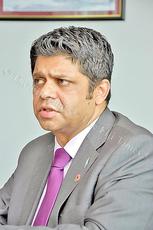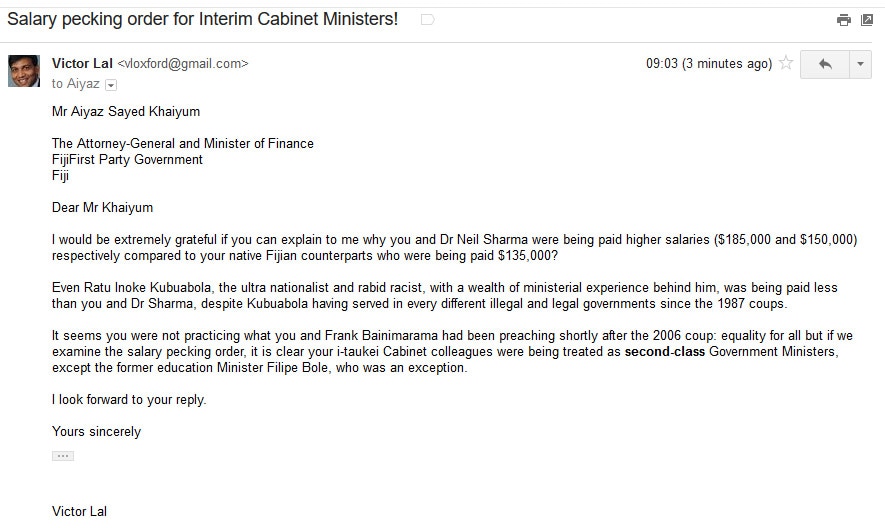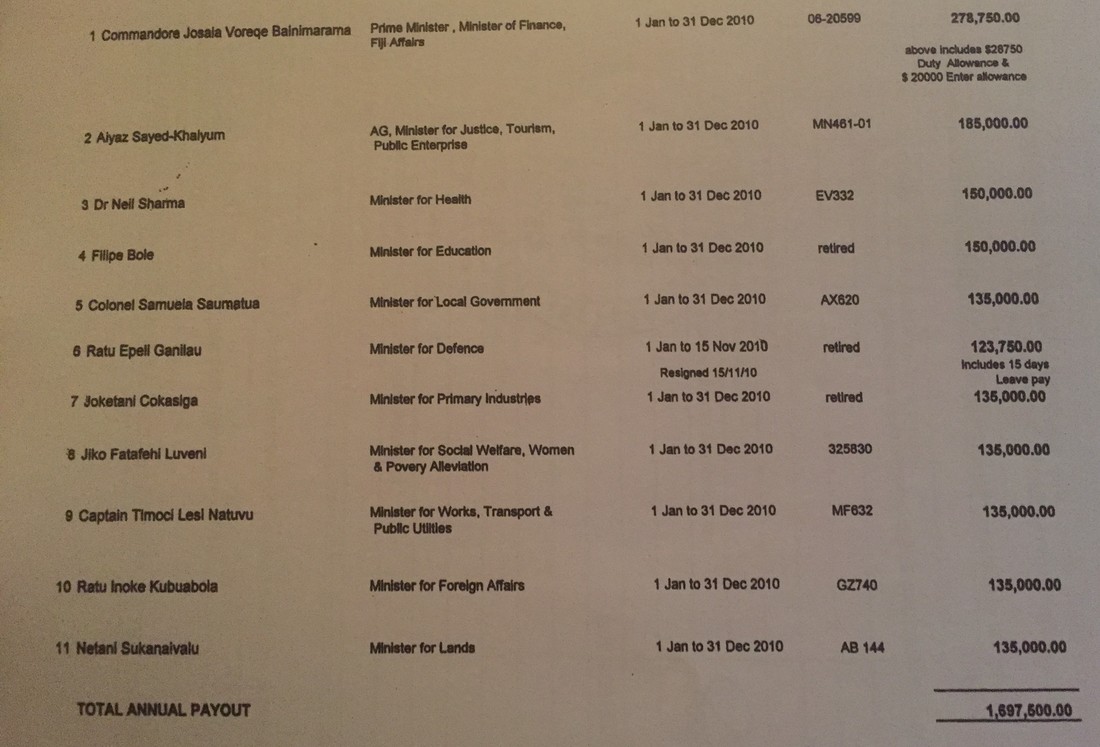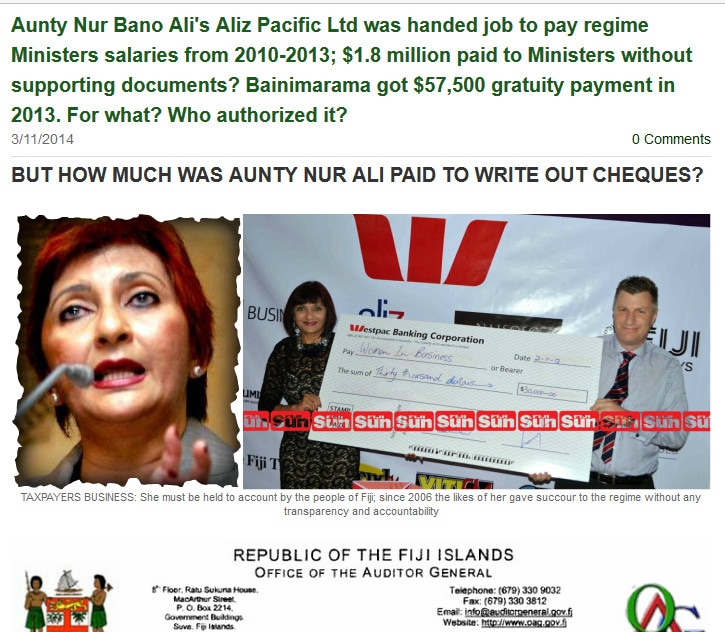Fijileaks: The students should have also asked Khaiyum to explain why he was discriminating against native FFP Cabinet Ministers when it came to salaries - as we can see in the Fijileaks banner and story below:
"Khaiyum says if Ministers are paid well, there will be less corruption. Really? Corruption levels in Fiji have risen significantly since the takeover by Bainimarama in 2006 because of an absolute lack of accountability and transparency in his government’s handling of public funds and awarding of government contracts. They also paid themselves the highest salaries and allowances paid to any government minister in the past."
AG Aiyaz Khaiyum makes a pathetic attempt to justify the ridiculously high salaries and allowances paid to the PM and his Ministers when questioned by high school students in Sigatoka.
First, the Sigatoka students must be commended for raising the issue of high Ministerial salaries at the national budget consultations.
Khaiyum’s response was that ministerial salaries in Australia, New Zealand, Singapore and PNG were much higher. This was classic Khaiyum tactic: mislead and bamboozle the students.
How can anyone compare salaries in Fiji with Australia, New Zealand, Singapore? The comparison is completely irrelevant considering that the Gross Domestic Product (GDP) of these countries is many, many times higher than that of Fiji.
Singapore’s per capita income is also much higher and they run a clean government. Singapore is not considered a developing country any more – its economic performance is far superior to Fiji’s.
Secondly, Khaiyum says if Ministers are paid well, there will be less corruption.
Really? Corruption levels in Fiji have risen significantly since the takeover by Bainimarama in 2006 because of an absolute lack of accountability and transparency in his government’s handling of public funds and awarding of government contracts.
They also paid themselves the highest salaries and allowances paid to any government minister in the past.
Transparency International stopped listing Fiji on its corruption surveys because of a lack of data. The Auditor General’s reports since 2008 have highlighted many instances of corrupt practices, funds unaccounted for and lack of acquittals and proper documentation for moneys used.
To this day neither the Prime Minister nor Khaiyum has given details of super salaries paid secretly to them through his aunt’s Suva accounting firm between 2010 and 2013. Queries on this were raised in the Auditor General’s report for 2014.
Under this government, Cabinet Ministers and Parliamentarians have awarded themselves huge increases in pays and allowances without the increases going through an independent remunerations committee, as in the past.
Their super salaries are notoriously disproportionate to the miserable $2.30 an hour they have set as the minimum national wage rate.
Is it little wonder that even school children are beginning to question their super salaries?
The Fiji Times
Tuesday, April 18, 2017
THE salaries of Government ministers were questioned by high school students during the National Budget Consultation in Sigatoka recently.
The issue was put forward to Minister for Economy and Attorney-General, Aiyaz Sayed-Khaiyum who addressed the secondary students during a budgetary consultation last week.
He explained that corruption was more likely to occur if public officials were being paid less than what they deserved.
"If you go to PNG, NZ and Australia, their (ministers') salaries are way higher," he said.
"India has been rated as the most corrupted Asian country in the world. And in Singapore, they pay their ministers in US dollars. They pay them $US1.5million ($F3.1m). So talking about ministers' salaries, if you look at the corruption levels of the previous governments, isn't it better to pay somebody well than to have a corrupt country. If you are going to pay your ministers a small amount of money, do you think that the opportunity for corruption would increase?"
He said each aspect of a minister's salary was taken into account by Government.
"We have to find out how each person is using that money. These are the kinds of things that we look at. We have to look at the management of these funds.
"When you become a minister, you will be given a set amount of salary, but we also take into account who's paying for his water, who's paying for his electricity and who's paying for all of his other expenses.
"In some countries, as soon as you become a minister, they are automatically given huge bundles. They are given servants or people that work for them at their different homes."
He said it was similar for other public servants.









